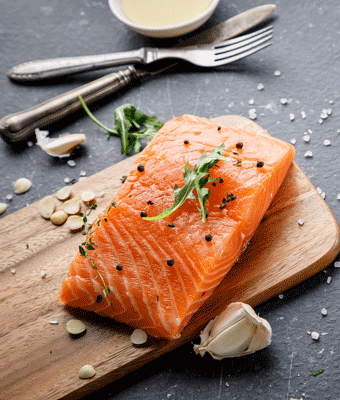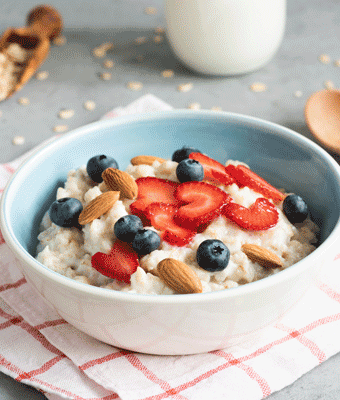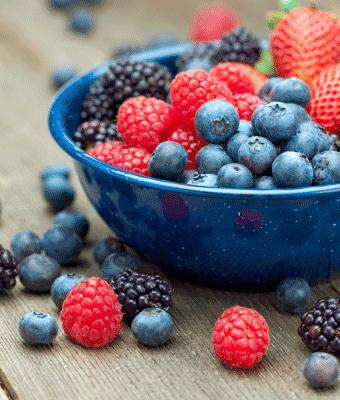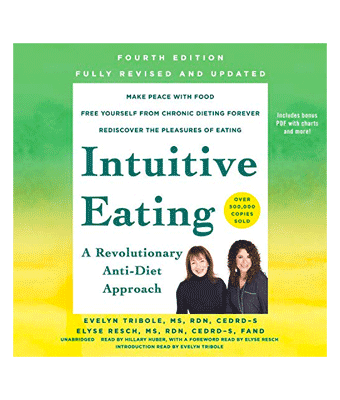WellnessVerge is reader-supported. We may earn a commission when you make a purchase through the links on this page. Learn more about our process here.
Best Diets of 2023, According to Dietitians
Last Updated on October 16, 2023
Medically Reviewed by Ana Reisdorf, MS, RD
Following a healthy diet can improve your physical and mental health, as well as your quality of life. When it comes down to it, the right diet for you is one you can follow long-term. In this article, we’ll narrow down the best sustainable diets for you to choose from based on your goals.


Your diet choices play a huge role in your physical and mental health. But it can often feel overwhelming knowing where to start and which diet is best. (1)
According to the CDC, at least 17% of adults follow a specific diet, with a higher percentage of this group being women. (2)
You may want to start a new diet for many reasons, and the term “diet” may mean something different to you than to somebody else.
If you’ve ever tried to eat differently in order to lose weight, you may think of a “diet” in terms of actively restricting your food intake. But the word “diet” can mean so much more than that.
The meaning of “diet” can mean so many things depending on your goals, life experiences, and what you were taught. It could mean a specific way of eating to lose weight, the type of food a person enjoys, or a way of eating for health.
There are many healthy diets out there, but not all diets will work for everyone. When it comes to choosing the best diet for you, it’s a matter of finding a diet that meets your health goals, preferences, and budget so it’s sustainable.
In this article, we narrow down the best diets based on specific goals or health concerns.
Summary of Our Picks:
- Best for general health: Mediterranean Diet
- Best for weight loss: WW (Weight Watchers)
- Best for weight loss runner-up: Noom
- Best for diabetes: DASH Diet
- Best for heart health: Flexitarian Diet
- Best for brain health: MIND Diet (3)
- Best for IBS: Low FODMAP Diet
- Best non-diet: Intuitive Eating
How We Picked Our Diet Recommendations
To select the best diets, we leaned on our experience as dietitians and evaluated each diet based on several factors:
- Supported by Research: We only picked diets with high-quality research studies supporting their long-term health benefits.
- Budget-Friendliness: If eating healthy is stretching your budget, it probably isn’t going to be sustainable. We choose diets that are affordable and that don’t require you to go to multiple specialty stores in order to follow them properly.
- Ease of Following It: Best diets do not require you to restrict or avoid certain foods. Having variety and balance is essential when it comes to a healthy diet you can follow long-term. We picked diet programs that encourage a variety of foods to get the most nutritional value and keep things interesting, as you always have something new to try.
- Time Commitment: Any healthy diet will require some time commitment. We picked diets with reasonable time requirements for planning, grocery shopping, and cooking.
Best for General Health: Mediterranean Diet

Pros
- Backed by research
- Large variety of foods to choose from
- Easy to follow
- Sustainable
Cons
- May require more prep
- Lacks specific guidelines – can be challenging for those who need structure
- Additional guidance may be necessary for those with medical conditions
Key Takeaway
The Mediterranean way of eating is good for someone looking to improve their overall health, and it’s also for someone who wants more flexibility in a diet and doesn’t want to be on a set meal plan. However, for someone who needs a set plan and wants to be told exactly what to do, the Mediterranean plan may not be structured enough.
If you’re looking to improve your diet quality and overall health, the Mediterranean diet tops the list. This diet has been ranked #1 best diet for the past few years by the U.S. News & World Report (an annual report that ranks the top diets based on specific criteria determined by experts).
The Mediterranean diet is inspired by the eating habits of the Mediterranean islands of Greece, Italy, and Spain. Here are the core features of the diet:
- Emphasizes foods such as fruits, vegetables, nuts, seeds, whole grains, potatoes, legumes, fish, seafood, herbs, spices, and extra-virgin olive oil.
- Foods like poultry, eggs, yogurt, and cheese are enjoyed in moderation.
- Red meat is eaten sparingly.
- Sugary beverages, added sugars, processed foods, and refined oils are discouraged.
Several studies have demonstrated the health benefits of the Mediterranean diet, such as lowering heart attack and stroke risk, weight loss, reducing the risk of type 2 diabetes, and even preventing premature death. (4)
Here is a 1-day sample menu on the Mediterranean diet.
- Breakfast: 1 cup of Greek yogurt, 1/2 cup of berries, 1–2 ounces of nuts
- Lunch: Green salad with chickpeas and tuna
- Dinner: Salmon with quinoa and leafy greens
- Snack: Dates with almond butter
Cost: There is no set program in place to determine a fixed cost, but following this eating pattern is reported to cost more than the typical Western diet. However, the foods encouraged are nutrient-dense and of high quality, which increases the value.
Best for Weight Loss: WW (Weight Watchers)
Pros
- Flexible to different preferences
- Provides support and accountability
- Teaches you how to eat in the long-term
- Affordable cost
Cons
- Counting points can be cumbersome
- Support provided is not always by trained professionals
- Risk for weight gain once the program is stopped
Key Takeaway
Weight Watchers (WW) is a sustainable and effective weight loss program. You’ll reap the most benefits by sticking with the program and tracking regularly.
Losing weight is not always easy, but it is easier with proper diet and support. If your goal is to lose weight healthily, WW (formerly known as Weight Watchers) is one of the best programs out there.
WW is one of the most popular commercial weight-loss diets and for a good reason. No foods are off-limits, and the plan promotes balance and teaches you how to eat for life.
The diet encourages a variety of nutritious foods and works by assigning a certain number of “smart points” (or Personal Points) to each food based on its nutritional value.
Depending on the plan you choose, you are allowed a certain number of points per day (Personal Points Budget), as well as ZeroPoint foods. ZeroPoint foods started when WW introduced its new Freestyle program, which increased the diet’s flexibility and sustainability.
You have the option of choosing a plan with either more total PersonalPoints or more ZeroPoint foods, depending on your preference and the types of foods you like to eat.
You are supposed to track your points in the WW app so that you know you’re staying within your daily allotment or Personal Points Budget.
Foods Encouraged:
- Lean proteins like skinless chicken breast and turkey
- Fish and shellfish
- Eggs
- Beans and legumes
- Nonfat plain yogurt
- Plant-based proteins like tofu and tempeh
- Fruits
- Vegetables
- Whole grains
Foods Discouraged:
- Red meat
- Cookies
- Bagels
- Cakes
- Candy
- Pastries
- Fried foods
Here is a sample 1-day meal plan on the Weight Watchers program:
- Breakfast: Fresh figs with yogurt, honey, and figs
- Lunch: Farro salad with grapes, goat cheese, and tarragon vinaigrette
- Dinner: One-pot butternut squash mac and cheese
- Snack: Apple with 1 ounce of nuts
Studies have shown that 1/3 of those following Weight Watchers achieve more than a 5% weight loss, which is considered clinically significant for health. (5) It has also been the most effective commercial weight loss program long-term. (6)
Cost: $10–$60 a month, depending on your plan and its duration.
Best for Weight Loss Runner-Up: Noom
Pros
- Easy to follow
- Addresses psychological factors affecting weight loss
- Encourages whole foods
Cons
- Inability to personalize daily calories in the app
- No meal plans included – you must figure it out on your own
- Guidelines suggest limiting certain healthy foods for the sake of weight loss
Key Takeaway
Noom is an effective weight-loss program that addresses the psychological aspects of eating. You’ll reap the most benefits by engaging with the app regularly and tracking your calories. Some users report their calorie recommendations were too low to feel satisfied, however, so if this happens, we would suggest changing the “speed” of your weight loss, so it is not as strict.
Noom is our runner-up for the best diet program for weight loss.
Similar to Weight Watchers, Noom is an app-based diet loss program that encourages weight loss through behavior change, mindset, and stress management. It is another convenient program if your goal is to lose weight in a healthy way.
Noom is particularly known for its focus on addressing the psychological factors involved in eating, with the goal of long-term weight loss.
I appreciate Noom’s emphasis on these psychological factors, as these are often the biggest barriers to preventing permanent weight loss.
The entire program is done through the Noom app. You are assigned a certain calorie level based on your answers to a quiz and the speed at which you want to lose weight. You are encouraged to track your daily calories in the app for accountability.
While no foods are off-limits, foods are assigned to either a green, yellow, or red category. Green foods are encouraged over yellow and red foods.
Green Foods (encouraged):
- Most fresh fruits
- Most fresh vegetables
- Whole grains (oatmeal, brown rice, whole grain bread)
- Fat-free dairy products (milk, yogurt, cheese, plant milks)
Yellow Foods (in moderation):
- Lean protein (chicken, beef, salmon)
- Starches (quinoa, tortillas, beans)
- Vegetables (olives)
- Fruit (avocados)
- Low-fat dairy (milk, yogurt, cheese)
Red Foods (limited):
- Sweets
- High-fat meats (bacon, salami)
- Oils and fats (mayonnaise, olive oil, coconut oil, creamy dressings)
- Junk food (pizza, hamburgers, french fries, potato chips)
When you track your calories in the Noom app, it helps guide you in selecting more green foods throughout the day.
While I like how their diet guidelines encourage fruits and vegetables, I don’t necessarily agree with many of the foods on the yellow foods list, as many of these have been shown to be helpful for weight loss.
Here is a sample 1-day meal plan on Noom:
- Breakfast: Protein smoothie
- Lunch: Breaded chicken breast with quinoa and broccoli
- Dinner: Baked salmon with brown rice and broccoli
- Snack: Almonds and collagen water
Two large studies have demonstrated the effectiveness of Noom:
- The first study showed those who followed the program lost between 5%–8% of their body weight on average. The people who engaged with the app the most lost the most weight. (7)
- The second study involved women, where those who followed the program lost 5–8 pounds more weight than those who tried to lose weight on their own. (8)
Cost: $70 for a monthly auto-renewal program or $209 for the year.
Best for Diabetes: DASH Diet

Pros
- Backed by research
- Endorsed by several major health organizations
- Flexible and balanced
- Designed for long-term wellness
Cons
- Regular meal prep required
- No convenience foods available
- May take adjustment for some to limit salt
Key Takeaway
The DASH diet is a great diet for those with diabetes looking to improve insulin resistance and diet quality. It is not a quick-fix diet but a long-term way of eating for optimal health.
If you are at risk for or are diagnosed with diabetes, your diet choices play a significant role in managing your blood sugars and reducing your risk of complications.
The DASH diet, or Dietary Approaches to Stop Hypertension, is an eating method that can help reduce the risk of chronic diseases, including diabetes.
It was initially thought to be the most beneficial in reducing blood pressure or hypertension, but more research has revealed its effectiveness in controlling diabetes.
Here are the core features of the DASH diet:
- Focuses on nutrient-dense foods, including whole grains, fruits, vegetables, low-fat dairy, nuts, and seeds.
- Up to 6 ounces daily of lean protein such as meat, poultry, or fish.
- Particular focus on foods high in potassium, calcium, and magnesium.
- Limited in sodium.
- Limited in foods high in saturated fat and sugar.
Here is a sample 1-day meal plan on the DASH diet:
- Breakfast: Loaded oatmeal with pumpkin seeds, banana, and skim milk
- Lunch: Mediterranean bowl with quinoa, 3 oz chicken breast, and greens
- Dinner: 3 oz salmon with Swiss chard and brown rice
- Snack: Apple with Greek yogurt
The DASH way of eating has been seen in studies to improve insulin resistance, as well as blood pressure and overweight/obesity. (9)
When it comes to diabetes, a traditional low-carb, diabetic diet is not necessarily the answer, as these other risk factors need to be taken into account.
When you lower the risk of being overweight or having high blood pressure, it also helps to reduce inflammation and indirectly helps control blood sugar levels. (10)
Cost: There is no set program in place to determine a fixed cost.
Best for Heart Health: Flexitarian Diet
Pros
- Backed by research
- Balanced approach to eating
- Flexible
- Affordable
Cons
- May be difficult for meat-lovers
- Potentially low in iron and vitamin B-12
- May require some prep
Key Takeaway
The flexitarian diet is great for someone looking to enjoy all the heart-healthy benefits of a plant-based diet but wants the option to eat meat once in a while.
If you’re looking for a flexible diet that will support a healthy heart, the flexitarian diet is a solid choice.
The flexitarian diet is a way of eating that is primarily plant-based but allows flexibility for animal products in moderation. A good way to describe the flexitarian diet is plant-focused since the majority of the foods encouraged come from plants.
It was created by Registered Dietitian-Nutritionist Dawn Jackson Blatner. It was developed as a way to provide more flexibility for those following a plant-based lifestyle and is ranked as the best plant-based diet by U.S. News & World Report.
There is no set calorie level or meal plan, and the biggest goal is to enjoy more plant-based recipes. However, The Flexitarian Diet book does provide lower-calorie recipes for those also seeking weight loss.
Foods Encouraged:
- Fruits
- Vegetables
- Whole grains
- Plant-based proteins
- Eggs
- Dairy
- Oils, herbs, and spices
Foods in Moderation:
- Meat
- Added sugar
- Refined carbs
Here is a sample 1-day meal plan on the flexitarian diet:
- Breakfast: Summer vegetable omelet
- Lunch: Black sesame tofu summer rolls with peanut dipping sauce
- Dinner: Moroccan beef stew, couscous, string beans
- Snack: Grapefruit
A 2016 research review showed women following a flexitarian diet had reduced their weight and blood pressure numbers. (11)
The flexitarian diet is also high in fiber, which has been shown to support heart health and reduce the risk of cardiovascular disease. (12)
Even though it is not entirely plant-based, it has been seen to produce similar health benefits to vegetarian diets. This is good news for those who enjoy some meat in moderation.
Cost: There is no set program in place to determine a fixed cost, but it can be affordable as it’s lower in animal protein. Also, you can purchase The Flexitarian Diet book with recipes on Amazon for $22.00.
Best for Brain Health: MIND Diet

Pros
- Large variety of foods to choose from
- Research on its benefits is promising
- Sustainable
Cons
- Requires meal prep
- Additional guidance may be necessary for those with medical conditions
Key Takeaway
If you’re looking to boost your brain health and preserve your memory as you age, you may want to give the MIND diet a try. It includes components of the Mediterranean and DASH diets, both nutritious diets backed by research.
If you’re looking to support your cognitive health and preserve memory as you age, the MIND diet is designed to do just that.
The MIND diet was developed to support optimal brain health and combines features of the Mediterranean and DASH diets. (13) It has not been around as long as some other diets, so research is still ongoing. However, the research so far is promising.
This diet includes specific foods from each of these diets that have been shown to benefit brain health. (3)
Foods Encouraged:
- Green, leafy vegetables (6 or more servings per week)
- All other vegetables other than starchy ones like potatoes and corn
- Berries, like strawberries, blueberries, and raspberries (at least twice per week)
- Nuts, varying the type of nut (at least 5 servings per week)
- Beans (at least 4 servings per week)
- Whole grains, such as whole-wheat bread, brown rice, or steel-cut oats (at least 3 servings per day)
- Fish, specific fish encouraged are salmon, sardines, trout, and tuna as these are highest in omega-3’s for brain health (at least once a week)
- Lean poultry, like skinless chicken or turkey (at least twice per week)
- Olive oil, as your main oil in cooking, but it’s important to measure so you don’t overdo it on calories, and 1–2 tablespoons is a good serving
- Wine, in moderation (one glass a day), and even though more research has been done on the compound resveratrol in red wine, white may have benefits too (14)
Foods Discouraged:
- Butter and margarine, less than 1 tablespoon daily, and using healthier fats like olive oil instead
- Cheese, less than once per week
- Red meat, no more than 3 servings per week of beef, pork, or lamb
- Fried food, as little as possible, less than once per week
- Pastries and sweets, as little as possible
Here is a 1-day sample meal plan on the MIND diet.
- Breakfast: Overnight oats with strawberries
- Lunch: Tuna salad sandwich on wheat bread, side of carrots and celery with hummus
- Dinner: Chicken and vegetable stir-fry with brown rice
- Snack: Blueberries with 2 ounces of almonds
One large 2015 observational study showed those following the MIND diet had a 53% lower risk of Alzheimer’s disease. (15) Another study found that those adhering the most to the MIND diet experienced a slower decline in brain function. (16)
Cost: There is no set program in place to determine a fixed cost, but it is reported to cost more than the typical Western diet. However, the foods encouraged are nutrient-dense and of high quality, which increases the value.
Best for IBS: Low FODMAP Diet

Pros
- Research is promising
- Can improve GI symptoms and quality of life
- Backed by many health professionals
- Many resources on the diet
Cons
- Restrictive during initial phase
- Doesn’t work for everyone
- Can be time consuming to put in place
Key Takeaway
The low FODMAP diet can help improve symptoms in those with IBS or other digestive issues. The diet progression should be monitored by a registered dietitian trained in this diet to ensure you are meeting your nutritional needs.
If you suffer from IBS or just experience frequent bloating, gas, or indigestion, the low FODMAP diet may be for you. It is an elimination diet that helps to identify your symptom “triggers.”
FODMAPS stands for “fermentable oligo, di, monosaccharides, and polyols.” These are carbs found in certain foods that are most commonly known to cause digestive distress. (17)
When gut bacteria ferment these foods in the body, those who are sensitive to these foods may experience uncomfortable symptoms.
The primary fermentable food sources of the four FODMAP groups include:
- Oligosaccharides: Wheat, rye, legumes, blueberries, pears, nectarines, watermelon, garlic, and onions.
- Disaccharides: Milk, yogurt, and cheese.
- Monosaccharides: Fruit such as figs and mangoes, and sweeteners such as honey and agave.
- Polyols: Certain fruits and vegetables, such as blackberries and lychee, and low-calorie sweeteners, such as erythritol, which are found in lower sugar products.
The low FODMAP diet is designed to be followed in three phases:
- Phase 1, Elimination: This phase involves complete avoidance of all high-FODMAP foods. This continues for 3–8 weeks, or until digestive symptoms fully resolve.
- Phase 2, Reintroduction: This phase involves strategically reintroducing high-FODMAP foods. You add one new food at a time for three days while monitoring your symptoms. Doing this with each food helps to determine which specific foods are the cause of your symptoms.
- Phase 3, Personalization: At this stage, you have hopefully determined your food triggers. Now, you have to personalize the amount and type of high-FODMAP foods to include in your diet long-term. The goal is to be able to enjoy as much variety of foods as possible without experiencing digestive symptoms.
Here is a 1-day sample meal plan on the low-FODMAP diet.
- Breakfast: Poached eggs on sourdough with wilted greens
- Lunch: Tuna and sweet potato patties with a green salad
- Dinner: Grilled salmon with soy sauce, bok choy, and brown rice
- Snack: Rice cakes with peanut butter
A 2012 study found that those on a low-FODMAP diet reported reduced IBS symptoms and improved quality of life. (18) Another 2014 randomized controlled trial showed that those following a low-FODMAP diet experienced fewer irritable bowel symptoms. (19)
Cost: There is no set program in place to determine a fixed cost, but it allows many traditional, fresh foods. You can always save money by buying seasonal produce.
Best Non-Diet: Intuitive Eating
Pros
- Promising research
- No rules or restrictions
- Creates positive food relationships
- Sustainable
Cons
- Lack of structure may feel overwhelming for some
- Can cause initial weight gain in some
- Takes time and practice to implement
Key Takeaway
Intuitive eating is a way of eating without rules or restrictions and has multiple health benefits. It may take time to implement and adjust to this new way of eating, so enlist the guidance of a certified intuitive eating dietitian.
Intuitive eating may be for you if you’re looking to let go of rigid food rules and restrictions.
The concept of intuitive eating has been around for quite some time but has recently gained popularity among those seeking to move away from the dieting mindset. Intuitive eating is a way of eating that promotes a healthy attitude towards food.
Our diet culture often encourages strict dieting rules and “good” and “bad” foods. While some foods are more nutritious than others, this type of mentality can lead to unhealthy eating behaviors and even increase the risk of eating disorders in some people. (20)
If you’ve ever struggled with this, moving towards intuitive eating can help you repair your relationship with food and learn what foods your body truly needs.
Ten Core Principles:
- Reject the diet mentality
- Honor your hunger
- Make peace with food
- Challenge the food police
- Discover the satisfaction factor
- Feel your fullness
- Cope with your emotions with kindness
- Respect your body
- Movement — feel the difference
- Honor your health with gentle nutrition
There is no sample meal plan for intuitive eating, as there are no rules on what you should or shouldn’t eat.
When you first start intuitive eating, it may feel like you should just eat whatever you want, whenever you want. However, that is not the intent of intuitive eating.
Its true intent is to become more in tune with your body and what foods make you feel good physically and mentally. Once you learn to tune into these cues, it will become difficult to overeat.
Studies have linked intuitive eating to more positive physical and mental health outcomes, including a healthier BMI. (21) More studies are ongoing to determine its effects on various health measures further.
Cost: There is no set program in place to determine a fixed cost.
Frequently Asked Questions
How important is diet for overall health?
Your diet choices play a significant role in your overall health. Following a healthy diet can reduce your risk of obesity and other diet-related diseases such as heart disease, diabetes, and cancer.
How do I know which diet is best for me?
To determine the best diet for you, it’s essential to do your research to learn more about the diet you’re interested in and the types of food it entails.
Make sure it matches what you like to eat, your lifestyle, and the amount of time you have to follow that diet. The best diet for you is one you can follow for the rest of your life.
You can also always speak to a registered dietitian or your doctor for advice on which diet might be best for you.
What if I get tired of what I’m eating?
If you get bored with your diet, chances are it’s not the diet for you.
The best diet is one that offers a lot of variety and one that you can follow long-term, or else it simply won’t be sustainable.
How can I stay motivated to eat well?
Find a diet that includes plenty of foods you enjoy and variety to avoid getting boring. Surround yourself with other people who are also trying to eat well to motivate each other.
For more accountability, consider hiring an expert such as a registered dietitian to keep you on track.
At WellnessVerge, we only use reputable sources, including peer-reviewed medical journals and well-respected academic institutions.
- Defining a Healthy Diet: Evidence for the Role of Contemporary Dietary Patterns in Health and Disease:
https://www.ncbi.nlm.nih.gov/pmc/articles/PMC7071223/ - CDC: Special Diets Among Adults: United States, 2015–2018:
https://www.cdc.gov/nchs/products/databriefs/db389.htm - Diet Review: MIND Diet | The Nutrition Source | Harvard T.H. Chan School of Public Health:
https://www.hsph.harvard.edu/nutritionsource/healthy-weight/diet-reviews/mind-diet/ - Mediterranean diet and life expectancy; beyond olive oil, fruits and vegetables:
https://www.ncbi.nlm.nih.gov/pmc/articles/PMC5902736/ - Weight Watchers on prescription: An observational study of weight change among adults referred to Weight Watchers by the NHS:
https://link.springer.com/article/10.1186/1471-2458-11-434 - Efficacy of commercial weight loss programs: an updated systematic review:
https://www.ncbi.nlm.nih.gov/pmc/articles/PMC4446719/ - Relationship Between Age and Weight Loss in Noom: Quasi-Experimental Study:
https://diabetes.jmir.org/2020/2/e18363/ - Adherence as a predictor of weight loss in a commonly used smartphone application:
https://www.sciencedirect.com/science/article/abs/pii/S1871403X16300291 - DASH Eating Plan: An Eating Pattern for Diabetes Management:
https://www.ncbi.nlm.nih.gov/pmc/articles/PMC5439361/ - Hypertension in Diabetes:
https://www.ncbi.nlm.nih.gov/books/NBK279027/ - Flexitarian Diets and Health: A Review of the Evidence-Based Literature:
https://www.ncbi.nlm.nih.gov/pmc/articles/PMC5216044/ - Plant-based foods and prevention of cardiovascular disease: an overview:
https://pubmed.ncbi.nlm.nih.gov/12936948/ - Alzheimer's prevention: Does it exist? - Mayo Clinic:
https://www.mayoclinic.org/diseases-conditions/alzheimers-disease/expert-answers/alzheimers-prevention/faq-20058140 - Resveratrol and cognitive decline: a clinician perspective:
https://www.ncbi.nlm.nih.gov/pmc/articles/PMC6657254/ - MIND Diet Associated with Reduced Incidence of Alzheimer’s Disease:
https://www.ncbi.nlm.nih.gov/pmc/articles/PMC4532650/ - MIND diet slows cognitive decline with aging:
https://pubmed.ncbi.nlm.nih.gov/26086182/ - Integrative Medicine for Gastrointestinal Disease:
https://www.ncbi.nlm.nih.gov/pmc/articles/PMC5605819/ - Diet and effects of diet management on quality of life and symptoms in patients with irritable bowel syndrome:
https://pubmed.ncbi.nlm.nih.gov/22446969/ - A diet low in FODMAPs reduces symptoms of irritable bowel syndrome:
https://pubmed.ncbi.nlm.nih.gov/24076059/ - Dieting and the development of eating disorders in obese women: results of a randomized controlled trial:
https://academic.oup.com/ajcn/article/80/3/560/4690531?login=true - Eating-Related and Psychological Outcomes of Health at Every Size Intervention in Health and Social Services Centers Across the Province of Québec:
https://pubmed.ncbi.nlm.nih.gov/29986603/










